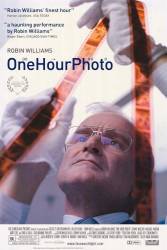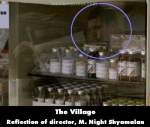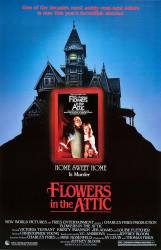
Trivia: Victoria Tennant hated the scene where her character was to be killed off so much that she refused to film it and walked off the set. The scene then had to be done by a stunt double.

Trivia: The "old gangster movie" that's on the TV in Harry's apartment is the fictional movie "Angels with Filthy Souls," which was seen in the movie "Home Alone." The director wanted a detective movie for the scene, and said: "We needed something and I hadn’t figured out what I was going to put on that TV yet...Just as a laugh, we got the movie that they shot for Home Alone off of YouTube...We could never beat it!"
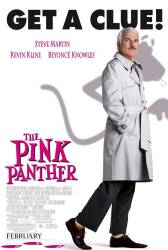
Trivia: At the end of the film, when the hospital bed crashes through the hospital window, Inspector Clouseau says "That breeze feels good". Steve Martin had said this line in the 1983 film "The Man with Two Brains", where his character Dr Michael Hfuhruhurr tells Dolores Benedict the same words after he breaks a window.

Trivia: During the feast in which Christian finds a pubic hair inside of his food, look closely at the drinks on the table. While the camera never calls direct attention to this, if you look closely, Christian's drink is very slightly darker than everyone else's. Earlier in the film, the camera briefly passes over a mural that depicts a woman collecting menstrual blood in a cup. (Along with the image of a woman cutting off pubic hairs, like the one Christian found in his food.) It seems Christian's drink has been laced with something he didn't expect.
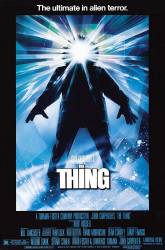
Trivia: The TV edit of the film differs widely from the theatrical release - lots of footage was purposely edited out, such as when the dead Norwegian on the table blinks, and there is also a narration. Director John Carpenter has publicly stated that he finds the TV edit embarrassing and a disgrace to his movie.
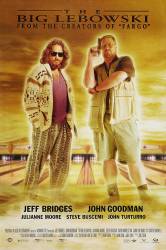
Trivia: At the beginning of the movie, when The Dude is writing a check for the cream at the grocery, look at the date on the check. Sept 11, 1991. A few seconds later we see George Bush Sr. talking about Iraq. So here we have a scene containing Sept. 11th, George Bush and references to the Middle East in a movie that takes place in 1991. (00:03:00)
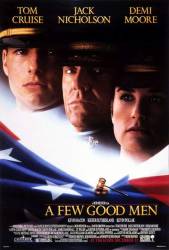
Trivia: Screenwriter Aaron Sorkin has a cameo as a lawyer in a bar talking to a woman about one of his cases.
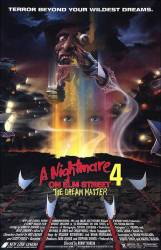
Trivia: Check out the nurse that wakes Kristen up at the school infirmary. It is Robert Englund, out of his Freddy make-up. After Kristen wakes up, it is a different person.
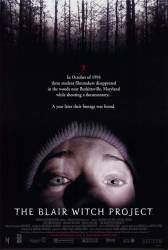
Trivia: There are 133 F-words in this movie.
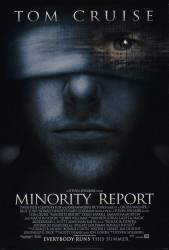
Trivia: Paul Thomas Anderson, who directed Tom Cruise in Magnolia, has a cameo on the train. It is reported that he is so hard to find that Anderson himself does not know where he appears.
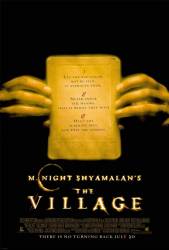
Trivia: At the ranger's office when the security guard was stealing the medical supplies, you see a cameo of M. Night Shamalayan in the reflection of the glass.
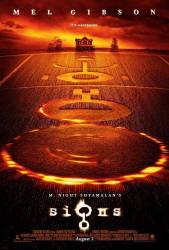
Trivia: When the alien's hand comes out of the coal grate for Morgan, if you look closely you will see that the hand was already through the grate and the alien was using its colour changing abilities to hide. So if you look very closely you will that that the hand comes UP from the grate and not through it, and if you look VERY carefully you can see the outline of the hand even before Morgen says "What?"
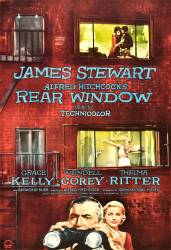
Trivia: Alfred Hitchcock chose Raymond Burr to portray the villainous Lars Thorwald due to his resemblance of David O. Selznick, a producer Hitchcock hated.
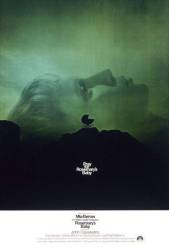
Trivia: The bystanders looking at the camera when Rosemary crosses the street were staring in disbelief as Mia Farrow actually wandered out into oncoming traffic! Polanski did not want to "stage" the scene, so she was literally risking her life.
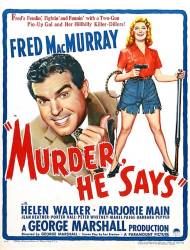
Trivia: In this wacky 1945 comedy (starring Fred MacMurray, Helen Walker, Marjorie Main, Peter Whitney and Porter Hall), the entire life-or-death plot is driven by a nonsense rhyme that must be decoded: "Honors Flysis, Income Beezis, Onches Nobis, Inob Keesis." The rhyme translates: "On horse flies is, In comb bees is, On chest knob is, In knob keys is" (and, indeed, the hero and heroine of the story eventually discover a valuable safe deposit box key hidden within a knob on a wooden chest). Throughout the film, this nonsense rhyme is repeatedly delivered as a simple but catchy 8-note musical ditty (that was also the movie's main theme song). Some 26 years later, when National Public Radio debuted "All Things Considered" in 1971 (its first news program in the United States), the radio show featured a simple and yet very-familiar musical intro that was credited to composer Don Vogeli. However, many listeners instantly recognized the "All Things Considered" intro as the theme music to "Murder, He Says," composed by Robert Emmett Dolan in 1944. National Public Radio was apparently oblivious to this amazing similarity. In fact, years after "All Things Considered" became their flagship news program, NPR conducted a listener contest inviting the audience to submit original lyrics for the established "All Things Considered" intro tune. To NPR's consternation, many hundreds of listeners contributed the lyrics: "Honors Flysis, Income Beezis, Onches Nobis, Inob Keesis."
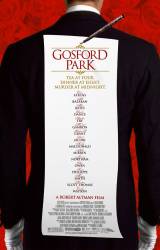
Trivia: The character, Ivor Novello, played by Jeremy Northam, was a real-life actor and composer. Six of his songs were included in Gosford Park's soundtrack. His film, "The Lodger" that Lady Constance mentions as being a flop, was a real movie directed by Alfred Hitchcock, based on Jack the Ripper.
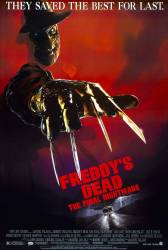
Trivia: Robert Englund has stated that out of all of the kills in the entire Nightmare franchise, Carlos' death is his personal favorite.
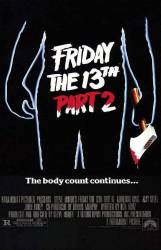
Trivia: Part of the reason Alice (the survivor of the first film) is only on screen during the first scene and is killed off early is because the actress portraying her (Adrienne King) was dealing with a real-life stalker and was trying to limit her acting appearances.
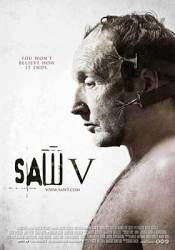
Trivia: When Agent Strahm is in his head box trap screaming, there is a lot of flash-cutting, including a shot of an outtake of the actor smiling with a towel in the cube and staff around him. Happens exactly at 9:52:370 into the movie, or frame 14203. VERY fast and easy to miss.
